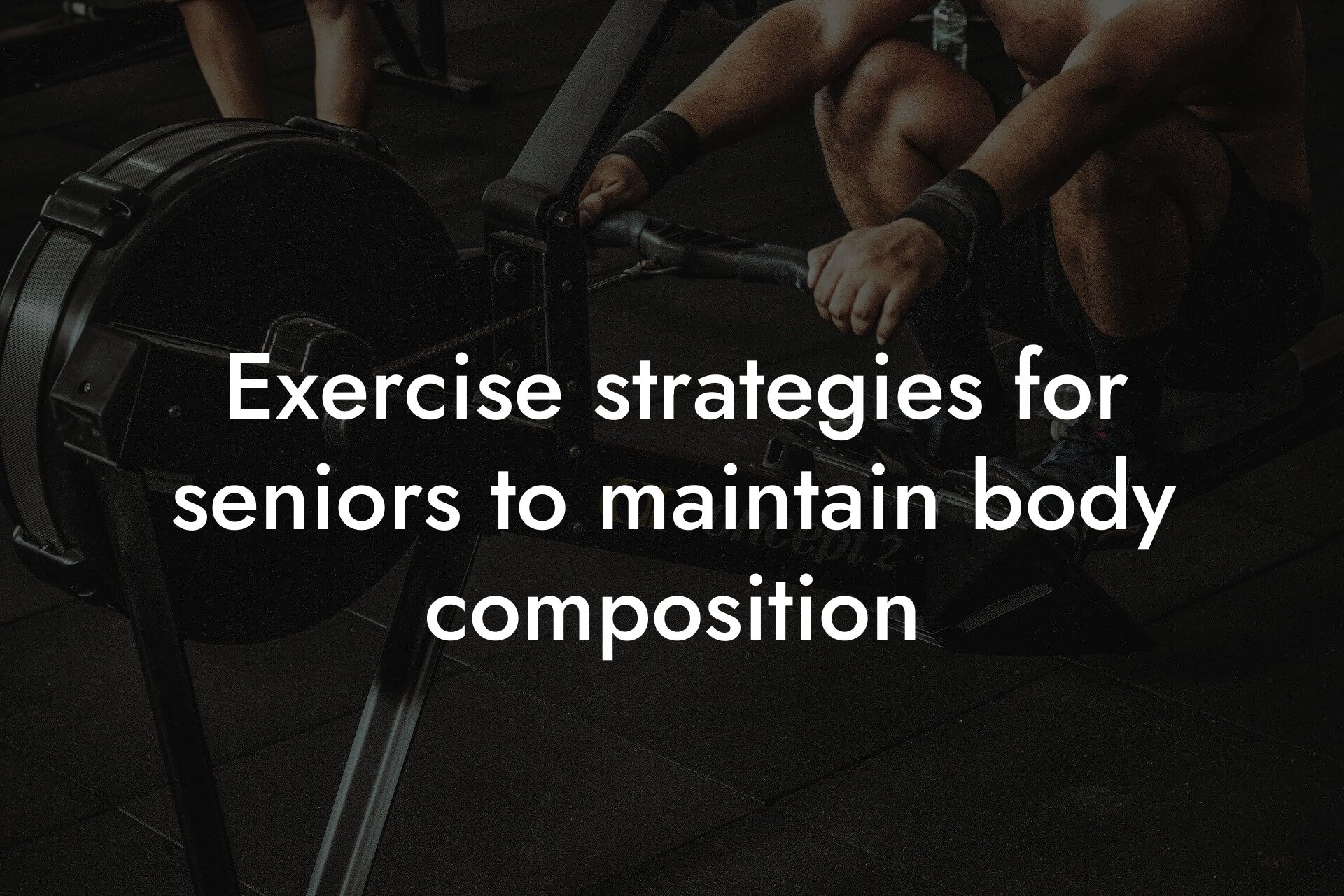As high-earning professionals, you understand the importance of maintaining a healthy and youthful appearance to stay ahead in your career. With the abundance of anti-aging diets and supplements on the market, it can be overwhelming to separate fact from fiction. In this article, we'll delve into the world of anti-aging diets, exploring the science behind them, and providing you with a comprehensive guide to make informed decisions about your health and wellness.
Table of Contents
The Science of Aging
Aging is a complex process that involves the deterioration of cellular structures and functions over time. It's influenced by a combination of genetic and environmental factors, including diet, lifestyle, and exposure to stress. As we age, our cells' ability to regenerate and function optimally declines, leading to visible signs of aging such as wrinkles, age spots, and decreased muscle mass.
What Are Anti-Aging Diets?
Anti-aging diets claim to slow down or even reverse the aging process by providing the body with specific nutrients, antioxidants, and compounds that promote cellular health and rejuvenation. These diets often focus on whole, nutrient-dense foods, and may eliminate or restrict certain food groups, such as sugar, dairy, or gluten, that are believed to accelerate aging.
The Most Popular Anti-Aging Diets
Some of the most popular anti-aging diets include:
- The Mediterranean Diet: Emphasizes whole grains, fruits, vegetables, and healthy fats, such as olive oil, to reduce inflammation and oxidative stress.
- The Okinawa Diet: Focuses on high consumption of plant-based foods, seafood, and soy products, which are rich in antioxidants and anti-inflammatory compounds.
- The Paleo Diet: Eliminates grains, dairy, and processed foods, advocating for a diet rich in lean proteins, fruits, and vegetables.
- The Alkaline Diet: Claims to reduce acidity in the body, which is believed to contribute to aging, by emphasizing alkaline-rich foods such as fruits, vegetables, and whole grains.
Do Anti-Aging Diets Really Work?
While some anti-aging diets have shown promise in reducing oxidative stress, inflammation, and improving overall health, the scientific evidence supporting their claims is often limited and inconclusive. Many of these diets are based on observational studies, which can be influenced by confounding variables and biases.
A 2019 review published in the Journal of the American Osteopathic Association found that while certain dietary patterns, such as the Mediterranean Diet, may have anti-aging effects, the evidence is largely based on animal studies and more research is needed to confirm their effectiveness in humans.
The Role of Nutrition in Anti-Aging
While the science behind anti-aging diets may be unclear, there is no denying the importance of nutrition in maintaining overall health and wellness. A diet rich in whole, nutrient-dense foods can provide the body with the necessary building blocks to support cellular health and function.
Some of the most important nutrients for anti-aging include:
- Omega-3 fatty acids: Found in fatty fish, nuts, and seeds, these anti-inflammatory compounds can help reduce oxidative stress and promote healthy cellular function.
- Antioxidants: Vitamins C and E, beta-carotene, and other antioxidants can help neutralize free radicals and reduce oxidative stress.
- Polyphenols: Found in plant-based foods, these compounds have been shown to have anti-inflammatory and anti-cancer properties.
Supplements and Anti-Aging
In addition to diet, many anti-aging supplements claim to provide an extra boost to slow down or reverse the aging process. Some of the most popular supplements include:
- Resveratrol: Found in grapes and berries, this polyphenol has been shown to have anti-aging effects in animal studies.
- Coenzyme Q10 (CoQ10): An antioxidant that can help reduce oxidative stress and promote energy production.
- N-Acetylcysteine (NAC): An amino acid that has been shown to have anti-aging effects by reducing oxidative stress and inflammation.
However, the evidence supporting the effectiveness of these supplements is often limited and inconclusive, and more research is needed to confirm their anti-aging effects.
A Holistic Approach to Anti-Aging
While diet and nutrition play a crucial role in maintaining overall health and wellness, they are just one piece of the anti-aging puzzle. A holistic approach to anti-aging should also include:
- Regular exercise: Exercise has been shown to improve cardiovascular health, reduce oxidative stress, and promote healthy cellular function.
- Stress management: Chronic stress can accelerate aging, making stress management techniques such as meditation and yoga essential for overall health and wellness.
- Sleep and relaxation: Adequate sleep and relaxation are critical for cellular regeneration and repair.
- Skincare and sun protection: Protecting your skin from the sun and using evidence-based skincare products can help reduce visible signs of aging.
While anti-aging diets may not be the magic bullet to eternal youth, a balanced and nutrient-dense diet, combined with a holistic approach to health and wellness, can help promote overall health and reduce the visible signs of aging. As high-earning professionals, it's essential to approach anti-aging with a critical and informed mindset, separating fact from fiction and focusing on evidence-based practices that support your overall health and wellness.
At Tano Performance Group, we understand the importance of maintaining a healthy and youthful appearance to stay ahead in your career. Our DEXA machine provides a complete body assessment, giving you the information you need to make informed decisions about your health and wellness. By combining a balanced diet with regular exercise, stress management, and evidence-based skincare practices, you can take your business to the next level and achieve the physical appearance you desire.
Frequently Asked Questions
What is an anti-aging diet?
An anti-aging diet is a type of diet that focuses on consuming foods and nutrients that can help promote healthy aging, reduce the visible signs of aging, and improve overall health and well-being. These diets often emphasize whole, nutrient-dense foods, and may include specific nutrients and compounds that have been shown to have anti-aging effects.
What are the benefits of an anti-aging diet?
The benefits of an anti-aging diet can include improved skin health, increased energy, enhanced cognitive function, and a reduced risk of chronic diseases such as heart disease, diabetes, and certain types of cancer. Anti-aging diets may also help to improve bone density, reduce inflammation, and promote healthy weight management.
What are some common foods found in anti-aging diets?
Common foods found in anti-aging diets include leafy green vegetables, berries, nuts, seeds, fatty fish, and whole grains. These foods are rich in antioxidants, omega-3 fatty acids, and other nutrients that can help to promote healthy aging.
What role do antioxidants play in anti-aging diets?
Antioxidants play a crucial role in anti-aging diets by helping to neutralize free radicals, which are unstable molecules that can cause oxidative stress and damage to cells. Antioxidants can help to reduce inflammation, improve skin health, and promote overall health and well-being.
Can an anti-aging diet really make a difference?
While an anti-aging diet is not a magic bullet, it can certainly make a difference in terms of promoting healthy aging and reducing the visible signs of aging. By consuming a diet rich in whole, nutrient-dense foods, individuals can help to support their overall health and well-being, and may experience improvements in skin health, energy levels, and cognitive function.
What is the relationship between inflammation and aging?
Inflammation is a natural response of the body to injury or infection, but chronic inflammation has been linked to many age-related diseases, including heart disease, diabetes, and certain types of cancer. An anti-aging diet can help to reduce inflammation by promoting the consumption of anti-inflammatory foods and nutrients.
How does an anti-aging diet differ from other types of diets?
An anti-aging diet differs from other types of diets in that it focuses specifically on promoting healthy aging and reducing the visible signs of aging, rather than simply promoting weight loss or improving overall health. Anti-aging diets often place a strong emphasis on the consumption of whole, nutrient-dense foods, and may include specific nutrients and compounds that have been shown to have anti-aging effects.
Can an anti-aging diet help to improve skin health?
Yes, an anti-aging diet can help to improve skin health by promoting the consumption of foods and nutrients that are rich in antioxidants, omega-3 fatty acids, and other nutrients that are beneficial for skin health. A diet rich in whole, nutrient-dense foods can help to improve skin elasticity, reduce the appearance of fine lines and wrinkles, and promote a more youthful glow.
What is the role of omega-3 fatty acids in anti-aging diets?
Omega-3 fatty acids play a crucial role in anti-aging diets by helping to reduce inflammation, promote heart health, and support brain function. Foods rich in omega-3 fatty acids, such as fatty fish, nuts, and seeds, are often emphasized in anti-aging diets.
Can an anti-aging diet help to improve cognitive function?
Yes, an anti-aging diet can help to improve cognitive function by promoting the consumption of foods and nutrients that are rich in antioxidants, omega-3 fatty acids, and other nutrients that are beneficial for brain health. A diet rich in whole, nutrient-dense foods can help to improve memory, concentration, and overall cognitive function.
What is the relationship between gut health and aging?
Gut health is closely linked to overall health and well-being, and research has shown that an imbalance of gut bacteria, also known as dysbiosis, can contribute to many age-related diseases. An anti-aging diet can help to promote gut health by emphasizing the consumption of fermented foods, fiber-rich foods, and other nutrients that support the growth of beneficial gut bacteria.
How does an anti-aging diet affect bone density?
An anti-aging diet can help to promote bone density by emphasizing the consumption of foods rich in calcium, vitamin D, and other nutrients that are essential for bone health. A diet rich in whole, nutrient-dense foods can help to reduce the risk of osteoporosis and fractures, and promote overall bone health.
Can an anti-aging diet help to reduce the risk of chronic diseases?
Yes, an anti-aging diet can help to reduce the risk of chronic diseases such as heart disease, diabetes, and certain types of cancer by promoting the consumption of whole, nutrient-dense foods, and reducing the consumption of processed and sugary foods.
What are some common myths about anti-aging diets?
Some common myths about anti-aging diets include the idea that they are only for older adults, that they are too restrictive or expensive, or that they are not supported by scientific evidence. However, anti-aging diets can be beneficial for individuals of all ages, and can be tailored to meet individual needs and preferences.
How can I get started with an anti-aging diet?
Getting started with an anti-aging diet is as simple as making a few small changes to your daily eating habits. Start by emphasizing the consumption of whole, nutrient-dense foods, and reducing your intake of processed and sugary foods. Consider consulting with a healthcare professional or registered dietitian to develop a personalized anti-aging diet plan.
What are some common challenges of following an anti-aging diet?
Some common challenges of following an anti-aging diet include finding healthy and convenient meal options, managing cravings for unhealthy foods, and staying motivated and consistent. However, with a little planning and creativity, it is possible to overcome these challenges and make an anti-aging diet a sustainable and enjoyable part of your lifestyle.
How long does it take to see results from an anti-aging diet?
The amount of time it takes to see results from an anti-aging diet can vary depending on individual factors such as age, health status, and diet quality. However, many individuals report noticing improvements in skin health, energy levels, and overall well-being within a few weeks to a few months of starting an anti-aging diet.
Can I follow an anti-aging diet if I have a busy lifestyle?
Yes, it is possible to follow an anti-aging diet even with a busy lifestyle. Consider meal prepping, cooking in bulk, and finding healthy and convenient meal options such as salads, smoothies, and soups. With a little planning and creativity, it is possible to make an anti-aging diet a sustainable and enjoyable part of your lifestyle, even on a busy schedule.
How does an anti-aging diet affect physical performance?
An anti-aging diet can help to improve physical performance by promoting the consumption of foods and nutrients that support energy production, reduce inflammation, and promote muscle health. A diet rich in whole, nutrient-dense foods can help to improve endurance, strength, and overall physical performance.
Can an anti-aging diet help to improve body composition?
Yes, an anti-aging diet can help to improve body composition by promoting the consumption of foods and nutrients that support healthy weight management, reduce inflammation, and promote muscle health. A diet rich in whole, nutrient-dense foods can help to improve body fat percentage, lean muscle mass, and overall body composition.
What is the role of stress management in anti-aging diets?
Stress management plays a crucial role in anti-aging diets by helping to reduce inflammation, promote healthy weight management, and support overall health and well-being. Anti-aging diets often emphasize the importance of stress management techniques such as meditation, yoga, and deep breathing exercises.
How does an anti-aging diet affect mental health?
An anti-aging diet can help to improve mental health by promoting the consumption of foods and nutrients that support brain health, reduce inflammation, and promote a healthy gut-brain axis. A diet rich in whole, nutrient-dense foods can help to improve mood, reduce symptoms of anxiety and depression, and promote overall mental well-being.
Here are some related articles you might love...
- How to stay active in your 50s and beyond
- Exercise strategies for seniors to maintain body composition
- Longevity supplements: What works?
- How to maintain bone density as you age
- The impact of aging on muscle mass
- Anti-inflammatory diets and their effect on aging
- The impact of aging on metabolic rate
- The role of telomeres in aging and fitness
- Sarcopenia: Preventing muscle loss with age
Zak Faulkner
Zak Faulkner is a leading authority in the realm of physical health and body composition analysis, with over 15 years of experience helping professionals optimise their fitness and well-being. As one the experts behind Tano Performance Group, Zak has dedicated his career to providing in-depth, science-backed insights that empower clients to elevate their physical performance and overall health.
With extensive knowledge of DEXA technology, Zak specializes in delivering comprehensive body assessments that offer precise data on body fat, muscle mass, bone density, and overall physique. His expertise enables individuals to make informed decisions and achieve their fitness goals with accuracy and confidence. Zak’s approach is rooted in a deep understanding of human physiology, combined with a passion for helping clients unlock their full potential through personalised strategies.
Over the years, Zak has earned a reputation for his commitment to excellence, precision, and client-focused service. His guidance is trusted by top professionals who demand the best when it comes to their health. Whether advising on fitness programs, nutritional strategies, or long-term wellness plans, Zak Faulkner’s insights are a valuable resource for anyone serious about taking their health and fitness to the next level.
At Tano Performance Group, Zak continues to lead our Content Team revolutionising how professionals approach their physical health, offering unparalleled expertise that drives real results.




